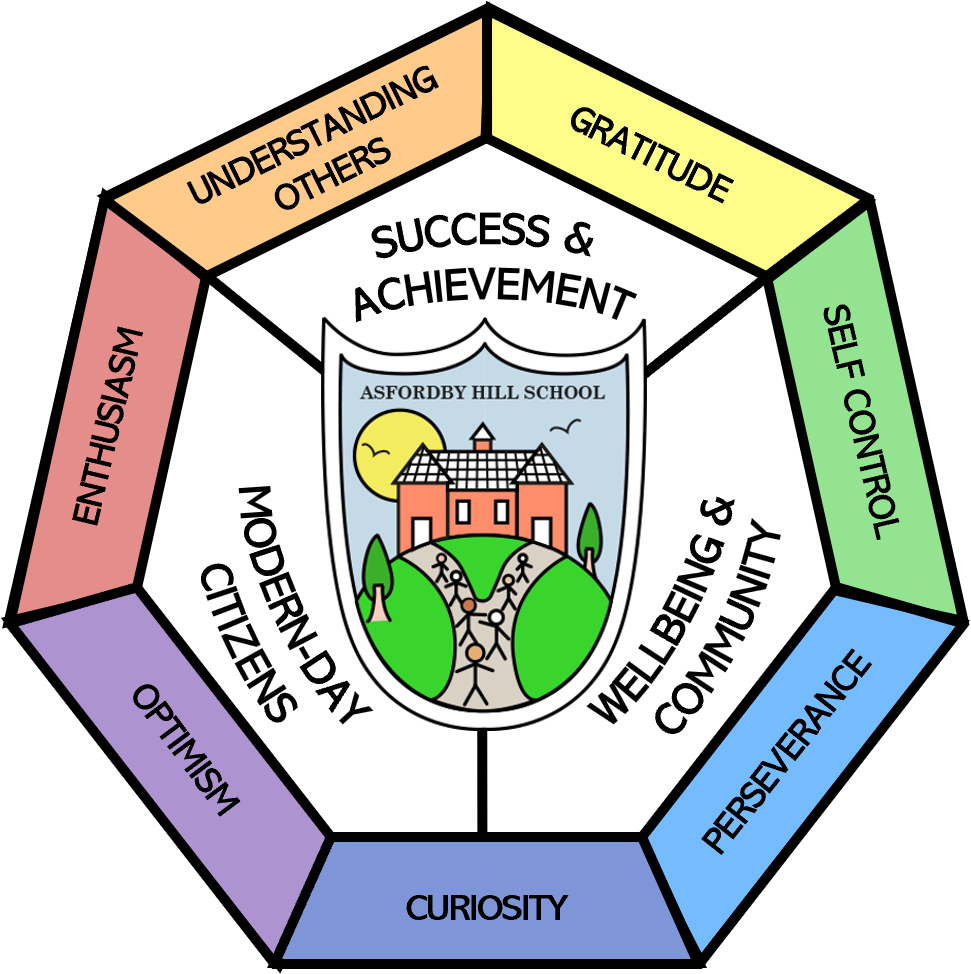Social, Emotional, Mental Health (SEMH)
At Asfordby Hill Primary School we provide a nurturing environment that supports the ‘whole’ child enabling them to thrive whatever difficulties they may face and we recognise how important mental health and emotional wellbeing is to our lives in just the same way as physical health.
We recognise that children’s mental health is a crucial factor in their overall wellbeing and can affect their learning and achievement. All children go through ups and downs during their school career and some face significant life events.
The Department for Education (DfE) recognises that: “in order to help their children succeed; schools have a role to play in supporting them to be resilient and mentally healthy”.
Our role in school is to ensure that children are able to manage times of change and stress, and that they are supported to reach their potential or access help when they need it.
We also have a role to ensure that children learn about what they can do to maintain positive mental health, what affects their mental health, how they can help reduce the stigma surrounding mental health issues, and where they can go if they need help and support. Our aim is to help develop the protective factors which build resilience to mental health problems and to be a school where:
-
All children are valued
-
Children have a sense of belonging and feel safe.
-
Children feel able to talk openly with trusted adults about their problems without feeling any stigma.
-
Positive mental health is promoted and valued.
-
Bullying is not tolerated.
The types of commonly occurring SEMH difficulties that may affect primary school children can include:
- Anxiety
- Low mood
- Emotional regulation
- Exam stress
- Sleep problems
- Low self-esteem
- Attention Deficit Hyperactivity Disorder (ADHD)
- Loss and bereavement
- Attachment difficulties
- Self harm
- Eating disorders
Within our classes to help with SEMH we have:
- Zones of Regulation Charts across our classes. They include strategies and techniques to support children’s mental well-being.
- Worry boxes and calm boxes in every classroom and accessible for all the children to help pupils emotionally self-regulate.
- Our behaviour policy focuses on positive reinforcement and supporting the children to show their best selves..
-
Introduction to ELSA
What is an ELSA?
ELSA is an initiative developed and supported by educational psychologists. It recognises that children learn better and are happier in school if their emotional needs are also addressed.
An ELSA is a specialist teaching assistant with a wealth of experience of working with children. ELSAs are trained and regularly supervised by the Educational Psychologists in Leicestershire. An ELSA is a warm and caring person who wants to help your child feel happy in school and to reach their potential educationally. Their aim is to remove the barriers to learning and to have happy children in school and at home.
ELSAs help children and young people learn to understand their emotions and respect the feelings of those around them. They provide the time and space for pupils to think about their personal circumstances and how they manage them.
It was designed to build the capacity of schools to support the emotional needs of their pupils from within their own resources.
Our Aim
We aim to establish a warm, respectful relationship with a pupil and to provide a reflective space where they are able to share honestly their thoughts and feelings. We can't necessarily fix their problems but we CAN provide emotional support. Change cannot necessarily be achieved rapidly and is dependent upon the context and complexity of the presenting issues. For children with complex or long-term needs it is unrealistic to expect ELSA intervention to resolve all their difficulties, however support will be designed to target specific aspects of a child's need. If additional support is needed, we will work with our families to organise additional support from other agencies.
In ELSA we aim to provide support for a wide range of emotional needs:
- recognising and understanding emotions
- building self esteem
- social skills
- friendship skills
- anger and behaviour management
- loss and bereavement
- relaxation techniques
- transition / change
- Teaching children skills to help them deal with their emotions.
-
How to refer a child for ELSA support
Children are usually referred for ELSA support by their class teacher, senior leaders or on occasion the SENDCo. With referral forms and discussing with teachers we will prioritise which children require a programme for the next 6-8 weeks. With the programme aims in mind, we then plan support sessions to facilitate the pupil in developing new skills and coping strategies that allow them to manage social and emotional demands more effectively.
A child can also be referred by parents by discussing the child's need with the class teacher, SENDCo or senior leaders.
Each session lasts from 30-45 minutes, once a week. Each session includes time to talk (emotional check-in), a planned main activity which will be interactive and may include a game, followed by some quiet, relaxation time.
ELSA sessions will vary from 1-2-1’s to Nurture Groups.
Depending on the child's needs, one-off sessions can also be arranged as well as weekly check- ins rather than a programme of sessions.
Supporting - not fixing
Remember, ELSAs are not there to fix children's problems. What they do is provide emotional support to those who need it. They aim to establish a warm, respectful relationship with a pupil and to provide a reflective space where children are able to share honestly, their thoughts and feelings.
For children with complex or long term needs it is unrealistic to expect ELSA intervention to resolve all of their difficulties. However, support will be designed to target specific aspects of a child's need.
Meet Our ELSA - Mrs Purkis

